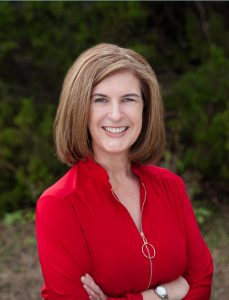The Integrative Approach
 After 13 years of practicing conventional medicine – the kind of medicine found in most doctor’s offices – Dr. Julie Reardon found another approach that she believed was more effective, one that combines the best parts of conventional medicine with many other common-sense wellness practices. This approach is called integrative medicine.
After 13 years of practicing conventional medicine – the kind of medicine found in most doctor’s offices – Dr. Julie Reardon found another approach that she believed was more effective, one that combines the best parts of conventional medicine with many other common-sense wellness practices. This approach is called integrative medicine.
According to Dr. Reardon, integrative medicine uses all the tools on the continuum of health care, such as genetic profiles, lab work, and medications. More importantly, integrative medicine acknowledges that patients are, first and foremost, human beings. Therefore, when treating patients, integrative medicine practitioners need to examine the circumstances of patients’ lives, including their diet, their exercise habits, and how they manage stress.
Before she embraced integrative medicine, Dr. Reardon said, “I felt like I was putting Band-Aids on things and not really looking at the root cause of issues for my patients, and not necessarily able to look at the whole person and all the aspects of their lifestyle in the way that I wanted to.”
Being the patient of a doctor who barely has time for you, talks down to you, or worse, doesn’t really listen to you, Dr. Reardon says, can have negative consequences on your health. That is why she puts great attention on building strong working relationships with her patients. Ultimately, she says, a productive doctor-patient relationship serves to enliven the healer that is already within the patient.
In addition to serving her patients’ healing journeys, Dr. Reardon feels a strong personal mission is to be a resource and inspiration for her peers. She works with doctors who want to practice medicine in a different, more life-enriching way.
“It starts with mindset about looking at the conflicts we see in medicine,” she says. “I see the current challenges for those of us who practice medicine as an opportunity, a calling even, to grow for ourselves and for the system. This actually parallels what we want our patients to do in their own lives.”
Dr. Reardon recently released her first eBook, My LIVE IT Philosophy: A Doctor’s Simple Guide to Thriving. It recounts her journey from conventional care to a fully integrative model of care and serves as an invitation to live a balanced and healthy lifestyle.
Dr. Reardon is a Diplomate of the American Board of Integrative Medicine® (ABOIM®), a Member Board of the American Board of Physician Specialties® (ABPS). The ABOIM fully espouses the idea that the whole patient – mind, body, spirit – must be taken into account for effective treatment and real healing. The ABOIM believes that medicine is truly integrative when it treats the root causes of illness instead of the symptoms, and emphasizes optimal health and healing.
The ABOIM offers board certification for physicians who wish to follow in the footsteps of Dr. Reardon and other physicians who have turned to integrative medicine. To learn more about this specialty, which is based on scientific inquiry, and for more information about physician board certification in integrative medicine, contact the ABPS today.






